By Glenn C. Kharkongor
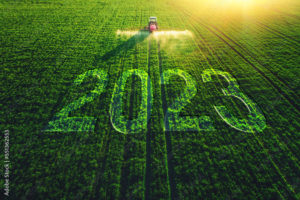 It’s a cold winter morning in late December. Students are on holiday, sleeping late, lazing around, dressing up in the evenings to enjoy the festivities of the season with family and friends. The difficulties and problems of the year gone by are put on hold for the present. Likewise, the uncertainties and worries of the soon-coming new year have been relegated to the background. After all, it’s holiday time with good food,
It’s a cold winter morning in late December. Students are on holiday, sleeping late, lazing around, dressing up in the evenings to enjoy the festivities of the season with family and friends. The difficulties and problems of the year gone by are put on hold for the present. Likewise, the uncertainties and worries of the soon-coming new year have been relegated to the background. After all, it’s holiday time with good food,  music and hanging out.
music and hanging out.
Today is December 28, and it’s around seven in the morning. I’m on the veranda in the crisp morning chill holding my mug of hot coffee with both hands. Two teenage boys, huddled in their hoodie jackets are walking by. It’s an unusual sight, teenagers up and  about this early in the morning. What could they be up to?
about this early in the morning. What could they be up to?
I called out and asked the question. Pausing momentarily, one of them turned to me and said, “We’re going to volunteer”. The two of them, 11th std students, occasionally spend a few hours at an old 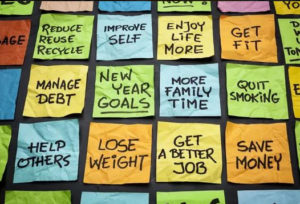 folk’s home. One of the activities at this home is making paper bags. Today they would go to the market, trying to sell shopkeepers these paper bags to raise some money for the home.
folk’s home. One of the activities at this home is making paper bags. Today they would go to the market, trying to sell shopkeepers these paper bags to raise some money for the home.
Generation Z
The two teenage boys are members of Gen Z, defined as those born from the mid-1990s to the early 2010s. 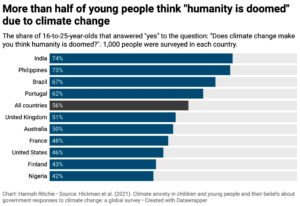 The internet was born before them, they are also called “digital natives”. They live in two worlds, the real-life world and the online world, moving easily, moment to moment, from one sphere to the other. These two worlds crisscross and connect seamlessly during the course of the day.
The internet was born before them, they are also called “digital natives”. They live in two worlds, the real-life world and the online world, moving easily, moment to moment, from one sphere to the other. These two worlds crisscross and connect seamlessly during the course of the day.
 There is a huge body of research data on Generation Z. They have been researched more than any other generation, before and after Covid. The Wikipedia entry on Gen Z has 236 references. Unlike the previous localized generations of Gen X and Gen Y, Gen Z is an
There is a huge body of research data on Generation Z. They have been researched more than any other generation, before and after Covid. The Wikipedia entry on Gen Z has 236 references. Unlike the previous localized generations of Gen X and Gen Y, Gen Z is an  international phenomenon because of social media. Across the globe, youth are instantly in touch: sharing music, fashion, ideas, mindsets and lifestyles.
international phenomenon because of social media. Across the globe, youth are instantly in touch: sharing music, fashion, ideas, mindsets and lifestyles.
Compared to previous generations, Generation Z tend to be more well-behaved, abstemious, and risk-averse. 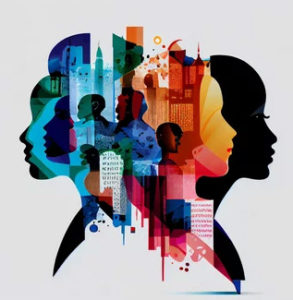 They tend to live more slowly than their predecessors when they were their age; have lower rates of teenage pregnancies; have less risky sex, and consume less alcohol. They are better at delaying gratification than their counterparts from the 1960s. They have been socially awakened by Covid, more tuned into social justice. They have moved from living in the moment to worrying about the future, and have a heightened sense of a need for self-sufficiency.
They tend to live more slowly than their predecessors when they were their age; have lower rates of teenage pregnancies; have less risky sex, and consume less alcohol. They are better at delaying gratification than their counterparts from the 1960s. They have been socially awakened by Covid, more tuned into social justice. They have moved from living in the moment to worrying about the future, and have a heightened sense of a need for self-sufficiency.
They are quieter, and there is greater awareness of 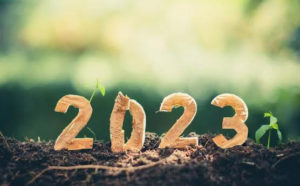 mental health conditions. They have been psychologically scarred by Covid, depression has increased, almost doubled from pre-Covid levels. They are feeling neglected, their problems are not solved, there is distrust of authority. In the age group 18-29 years, 60% expect vast change
mental health conditions. They have been psychologically scarred by Covid, depression has increased, almost doubled from pre-Covid levels. They are feeling neglected, their problems are not solved, there is distrust of authority. In the age group 18-29 years, 60% expect vast change  in the world and in their lives. Three-fourths of Indian youth feel that climate change has doomed the world. Culture, music and arts help them in coping.
in the world and in their lives. Three-fourths of Indian youth feel that climate change has doomed the world. Culture, music and arts help them in coping.
Around the world, members of Generation Z are spending more time on electronic devices, even for  learning. They have lower attention spans, vocabulary, and academic performance. More online education is acceptable, they are willing to assume more responsibility and self-efficacy in learning. But there is more focus and selectiveness: education must be perceived as useful and relevant. They are frustrated with monotony. They are more concerned than older generations with academic performance and job
learning. They have lower attention spans, vocabulary, and academic performance. More online education is acceptable, they are willing to assume more responsibility and self-efficacy in learning. But there is more focus and selectiveness: education must be perceived as useful and relevant. They are frustrated with monotony. They are more concerned than older generations with academic performance and job  prospects, and are willing to invest in education. Data shows that the negative effects of screen time are most pronounced in adolescents and young children (Gen Alpha), not in Gen Z.
prospects, and are willing to invest in education. Data shows that the negative effects of screen time are most pronounced in adolescents and young children (Gen Alpha), not in Gen Z.
A redefinition of students is needed
The word ‘student’ has some negative connotations.  First of all, it creates hierarchy and separateness between students and teachers. Secondly, it denotes a scholar, precluding other dimensions of identity and need. They are also customers, clients, even patients (because many may suffer from lack of psychological and social well-being, or have learning disabilities like dyslexia or autism spectrum disorder, conditions that may last into adulthood). Thirdly, and most importantly they are human beings, entitled to rights,
First of all, it creates hierarchy and separateness between students and teachers. Secondly, it denotes a scholar, precluding other dimensions of identity and need. They are also customers, clients, even patients (because many may suffer from lack of psychological and social well-being, or have learning disabilities like dyslexia or autism spectrum disorder, conditions that may last into adulthood). Thirdly, and most importantly they are human beings, entitled to rights, 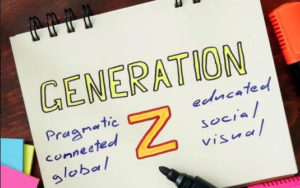 equality and democratic processes.
equality and democratic processes.
In one sense, students who pay fees are the customers of education. Their satisfaction and delight
should be the key elements of customer focus. Student surveys show that they are not satisfied with the present system of education. The feedback from students and recent graduates have given us fair  warning. Strong messages are coming through. As educationists and academicians, we have to dispossess ourselves of uninformed suppositions and superficial stereotypes about our students.
warning. Strong messages are coming through. As educationists and academicians, we have to dispossess ourselves of uninformed suppositions and superficial stereotypes about our students.
A thorough understanding of Gen Z is needed for all teachers so that we can ascertain the curriculum, pedagogy and goals of learning that will enable them  to survive and thrive in the new world. Current awareness of Gen Z seems to be low among teachers. We have to be educated on Gen Z career aspirations, psychological traits, learning styles, and responsibility for self-learning.
to survive and thrive in the new world. Current awareness of Gen Z seems to be low among teachers. We have to be educated on Gen Z career aspirations, psychological traits, learning styles, and responsibility for self-learning.
Uncertain, worried, but idealistic
 Economists, sociologists, futurists, and other world-watchers warn us that constant change, instability and uncertainty are the only sure variables of the future. There will be no return to ‘normal’. Pandemics, wars, famines, floods, environmental degradation and wayward politics is the fate of the planet. The older generation has bequeathed this legacy.
Economists, sociologists, futurists, and other world-watchers warn us that constant change, instability and uncertainty are the only sure variables of the future. There will be no return to ‘normal’. Pandemics, wars, famines, floods, environmental degradation and wayward politics is the fate of the planet. The older generation has bequeathed this legacy.
 No wonder that the youth of today are bewildered at the state of the planet. As they try to meander meaningfully through their teenage travails, they see little reason for hope. Unemployment, financial struggle, and dysfunctional relationships are all around them. They distract and entertain themselves with music, food and fashion. At times, they shut off the real-world, closeting themselves in social media, and are vilified for isolating themselves. It’s a no-win situation.
No wonder that the youth of today are bewildered at the state of the planet. As they try to meander meaningfully through their teenage travails, they see little reason for hope. Unemployment, financial struggle, and dysfunctional relationships are all around them. They distract and entertain themselves with music, food and fashion. At times, they shut off the real-world, closeting themselves in social media, and are vilified for isolating themselves. It’s a no-win situation.
Yet, like the two teenage boys of my story, they seem to have a code of values and a creed of ideals, that provide a compass for navigating this confusing world. The need and deserve understanding and affirmation.



